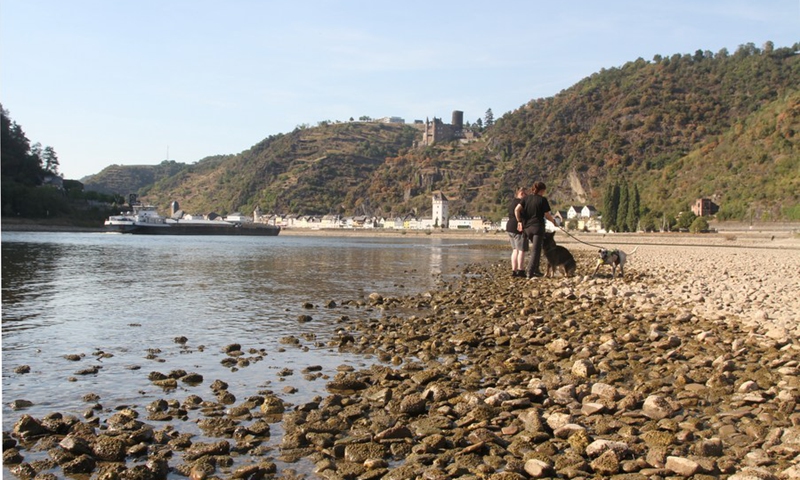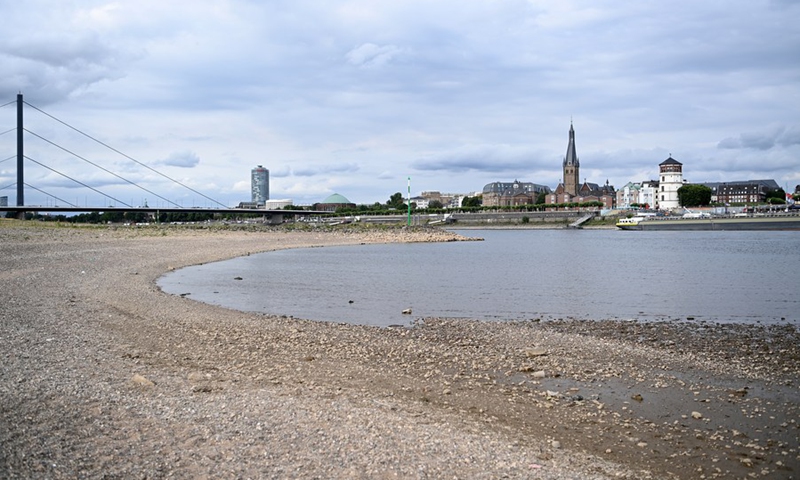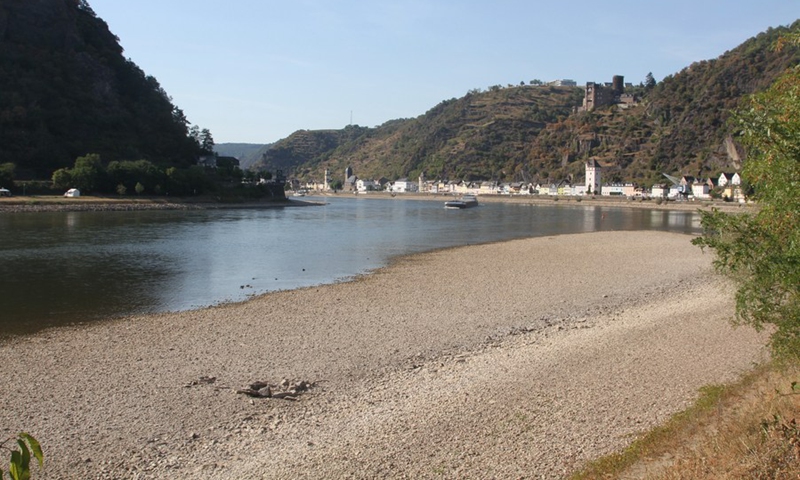
Photo taken on Aug. 11, 2022 shows the exposed riverbed of river Rhine in Kaub in the state of Rhineland-Palatinate, Germany.(Photo: Xinhua)

Photo taken on July 26, 2022 shows River Rhine in Dusseldorf, Germany.(Photo: Xinhua)

Photo taken on Aug. 11, 2022 shows the exposed riverbed of river Rhine in Kaub in the state of Rhineland-Palatinate, Germany.(Photo: Xinhua)
Recurring heat waves in Europe are causing water levels on the River Rhine to continue to dwindle, with a record low level of two centimeters recorded in Emmerich near Germany's border with the Netherlands on Monday.
Rainfall expected in the next few days would be "too little to provide a sustained easing of the situation on major rivers," a spokesperson of the German Federal Institute of Hydrology (BfG) told Xinhua.
The water level in Kaub on the Middle Rhine, where the river is shallowest, currently stands at 31 centimeters, which is equivalent to a channel depth of only 1.43 meters. For many types of ships, 40 centimeters is already too shallow, according to the BfG.
Cargo and passenger ships and ferries are struggling with low water levels on Europe's busiest waterway. Ships must reduce their cargo to avoid grounding, while many ferries cannot operate at all. Restrictions are likely to "remain in place in the coming weeks," the spokesperson said.
If water levels at the Kaub monitoring station continue below the critical mark of 78 centimeters for a period of 30 days, Germany's industrial output would decline by around 1 percent, the German Kiel Institute for the World Economy (IfW Kiel) warned last week.
The restrictions on transport via the Rhine would "hit supply chains that were already very strained," said IfW Vice President Stefan Kooths. Inland shipping is an important means of transport for coal and mineral oil, which are "at the root of many production chains."
To secure sufficient energy supplies under these circumstances, rail transport is to prioritize energy-related shipments, according to a draft regulation by the Federal Ministry of Digital Affairs and Transport (BMDV) and the Ministry for Economic Affairs and Climate Action (BMWK).
"We have a time (now) when crises are intertwining," Minister for Economic Affairs Robert Habeck has said, referring to the combination of sustained energy and water crisis hitting Germany's economy.






